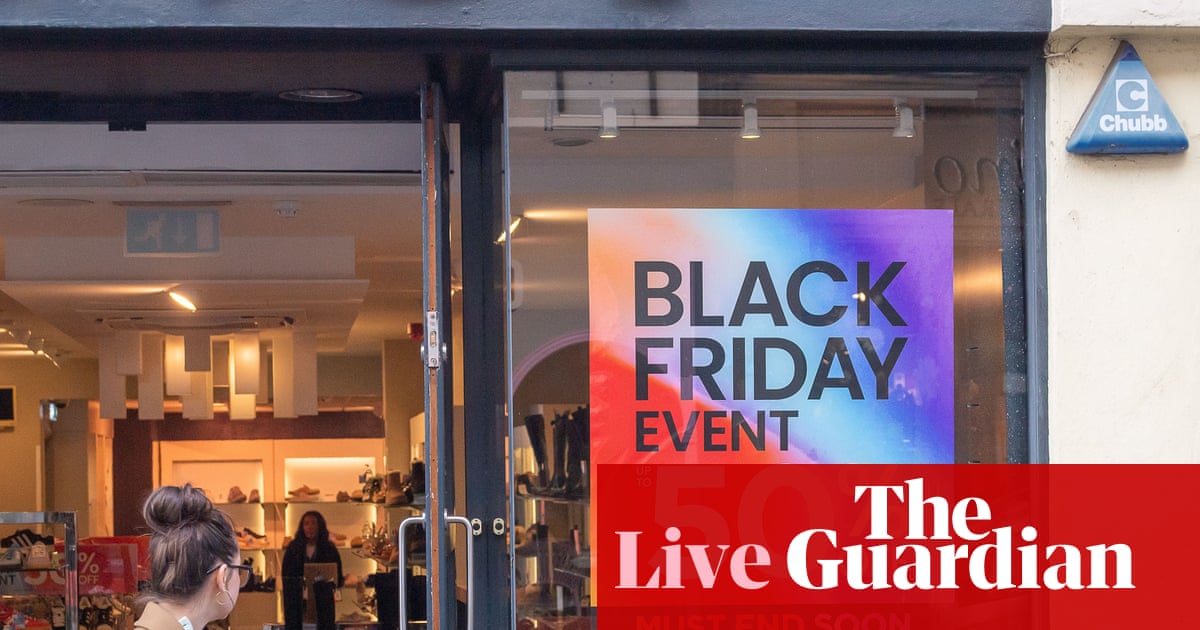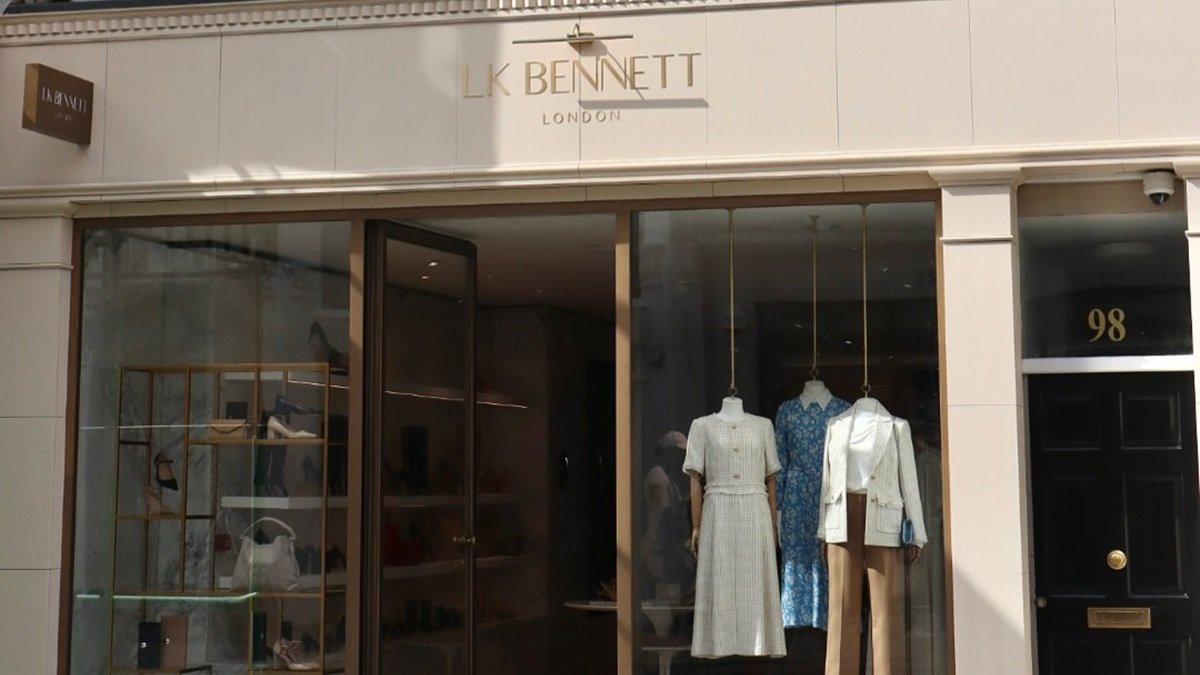Key events
Why Bank of England seems very likely to cut rates in December
Growing confidence that the Bank of England will cut interest rates next month could encourage some UK consumers to spend today.
The money markets now indicate there is a 94.2% chance that the Bank cuts base rate to 3.75% in December, down from 4%.
That’s up from 92% shortly after the budget, and around 85% before Rachel Reeves’s statement.
Shaan Raithatha, senior economist at Vanguard Europe, predicts cuts next year too
“The Budget delivered a smaller‑than‑expected fiscal tightening—around £18bn, or roughly 0.5% of GDP—and expanded fiscal headroom to about £22bn. That combination points to slightly stronger growth next year and a softer inflation profile, helped by measures that lower household energy bills and the continued fuel‑duty freeze.
“Taken together, the Budget is broadly neutral for monetary policy, but at the margin it increases the likelihood that the Bank of England will cut in December—taking Bank Rate from 4.00% to 3.75%—and guide towards a landing near 3.25% by mid‑2026
“Improved buffers should also support fiscal credibility, which is constructive for gilt markets. As ever, we advise investors to stay the course.”
Accountancy firm PwC has forecast that Black Friday spending will rise slightly this year.
They predicted:
-
Black Friday spending in the UK is set to reach £6.4bn, 1.5% higher than last year
-
Interest in Black Friday falls to 46% from 53% of shoppers last year, but those participating will spend £262 per head, 13% more than in 2024
-
Men are set to increase their spending by 17% and will spend 43% more than women
-
Four out of every five pounds will be spent online, either for home delivery or click & collect, with younger shoppers most likely to physically spend on the high street
My colleagues at The Filter have helpfully rounded up the best offers in the UK today, recommending good on products which they’ve tested or have been recommended by product experts.
Australia’s consumer regulator has warned that artificial intelligence is making it even harder to identify deceptive retailers, as so-called “ghost store” operators take advantage of Christmas and Black Friday to lure shoppers to their websites….
Researchers at cybersecurity firm NordVPN have discovered a sharp rise in fraudulent websites aimed at Black Friday shoppers.
Their data shows a 232% rise in the number of fake Amazon stores appearing on the internet, and another 525% rise in the number of fraudulent eBay sites.
NordVPN says:
Many of these sites are almost indistinguishable from the real thing – complete with copied branding, AI-generated product listings and convincing checkout pages designed solely to harvest personal and payment information.
Introduction: It’s Black Friday, so be careful out there
Good morning, and welcome to our rolling coverag of business, the financial markets and the world economy.
Consumers are being urged to stay on their guard today as retailers launch an assault of Black Friday special offers to lure shoppers to the checkout.
UK shops have warmly embraced America’s traditional post-Thanksgiving spending splurge, promising an array of bargains to the public.
But people need to stay sharp, for two reasons. Firstly the risk of fraud – the rise of AI technology is making it harder to distinguish real websites from fake ones. And second, the risk of an unscrupulous retailer offering a misleading special offer.
On the fraud risk, experts are warning the public to avoid unrealistic prices or requests for bank transfers. Earlier this month, the UK’s National Cyber Security Centre (NCSC) warned people to be on their guard in the run up to the day, and to stop the minute a purchase appears suspicious.
Jonathon Ellison, the director for national resilience at the NCSC, explained:
“This is … a time when cyber criminals seek to exploit our increased spending, using trusted brands, popular products, and current events to deceive people into clicking malicious links or sharing personal and financial information.”
Black Friday appears to be an increasingly online operation – unlike a decade ago, when early morning fights broke out between bargain-hunting shoppers, stores were forced to close, and the police stepped in to calm rucks over cheap electrical goods.
But whether you’re online or on the high street, be suspicious about the cut-price offerings.
A survey by Which? has found that eight in 10 products advertised as Black Friday deals are the same price or cheaper at the other times of the year
Which? tracked 175 items from eight major retailers in the year to May and found 83% were cheaper or equal in price at least once outside the four-week Black Friday period.
Reena Sewraz, Which? retail editor, said:
“Our research exposes the harsh truth: for the majority of shoppers, Black Friday is a false economy. Retailers are relying on hype and urgency to push products that are the same price, or even cheaper, at other times of the year.
“There are good deals to be found but they can be few and far between. Our experts sift through thousands of deals every day during the sales to hand-pick genuine deals on products we think are worth buying. Our advice is simple: take your time, don’t be fooled by clever marketing and do your research.”
The agenda
-
7.45am GMT: French GDP report for Q3 2025 (second estimate)
-
9am GMT: Italian GDP report for Q3 2025 (second estimate)
-
1.30pm GMT: Canadian GDP report for Q3 2025 (first estimate)







